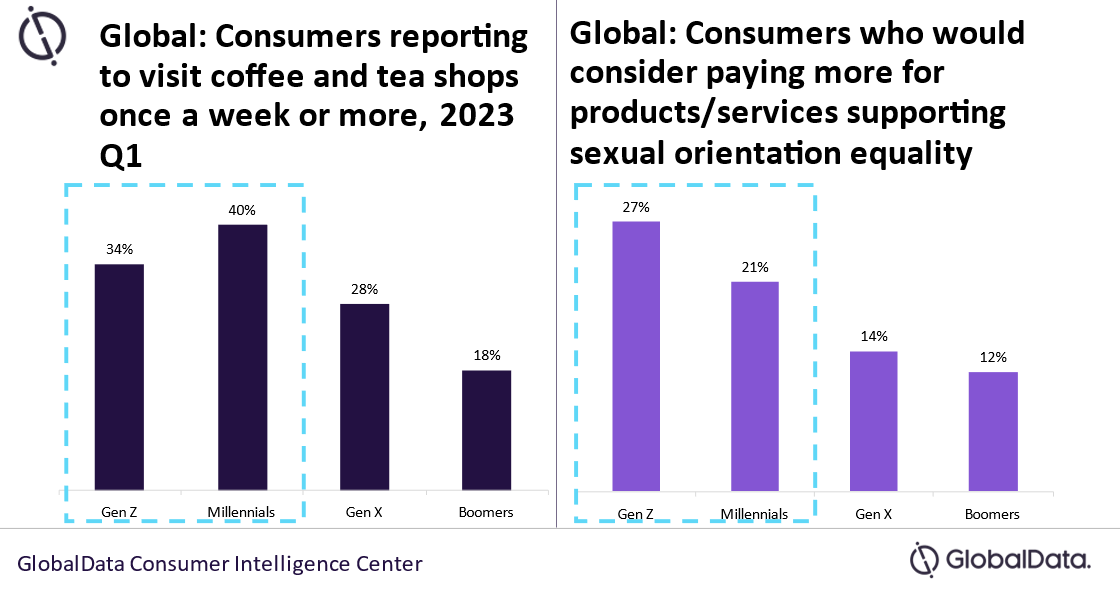Following the brand’s controversies in the past few years over labour rights violations, Starbucks is once again under fire from its unions for an alleged “no decorations” policy as Pride month in the US begins. This comes at a sensitive time in the US as many companies have been boycotted for supporting LGBTQ+ causes and states have passed anti-LGBTQ+ legislation. While Starbucks denies corporate policy changes on decorations and insists it supports LGBTQ+ causes, this most recent incident shows brands are still struggling to navigate and assess the potential impact of cancel culture on social media and in real life.
Starbucks is no stranger to cancel culture controversies, having been scrutinised for the mistreatment of labour unions in recent years. But the company enjoyed a positive Q2 2023, with earnings beating analysts’ expectations and same-store sales climbing 12% in the US. GlobalData’s 2022 Q3 consumer survey reveals that 46% of Americans strongly or somewhat agree that they will stop buying products from a brand if its values don’t align with their personal beliefs, yet many large companies such as Starbucks that have been implicated in controversy continue to perform well.
Why cancel culture is significant
This suggests a possible disconnect for some consumers between their intentions and actions. But brands should not trivialise controversies which do still alienate certain consumer groups and potential customers. The current economic climate is making it difficult for many foodservice operators to retain a steady flow of customers and stay afloat, making inclusivity of all demographics more crucial than ever.
With specific regard to coffee and tea shops, the first column graph above shows that younger generations – Gen Z and Millennials – are more frequent visitors than older generations. Younger generations are also typically more willing to pay more for products and services supporting social causes such as sexual orientation equality. This shows that while the majority of consumers may not necessarily boycott brands, companies are missing out on opportunities for extra revenue from key customers when they fail to resonate with consumers’ personal beliefs and values.
Recent issues surrounding LGBTQ+ rights in the US are undoubtedly putting brands in a difficult position, as opposing groups are keen to criticise any stance that companies choose to take. Budweiser’s recent U-turn on an endorsement partnership with a transgender influencer – which was seemingly replaced by a pro-America advert – demonstrates the risks when companies fail to commit to certain causes and values. Budweiser’s hasty attempts to avoid further controversy and reverse its narrative also signaled a lack of sincerity, and therefore damaged its brand identity and consumer engagement in the medium to long term.
The key takeaway from these incidents is that while foodservice and consumer brands cannot afford to alienate key demographics, they must make full and carefully considered commitments to social causes to increase customer loyalty and open up more meaningful marketing opportunities.





